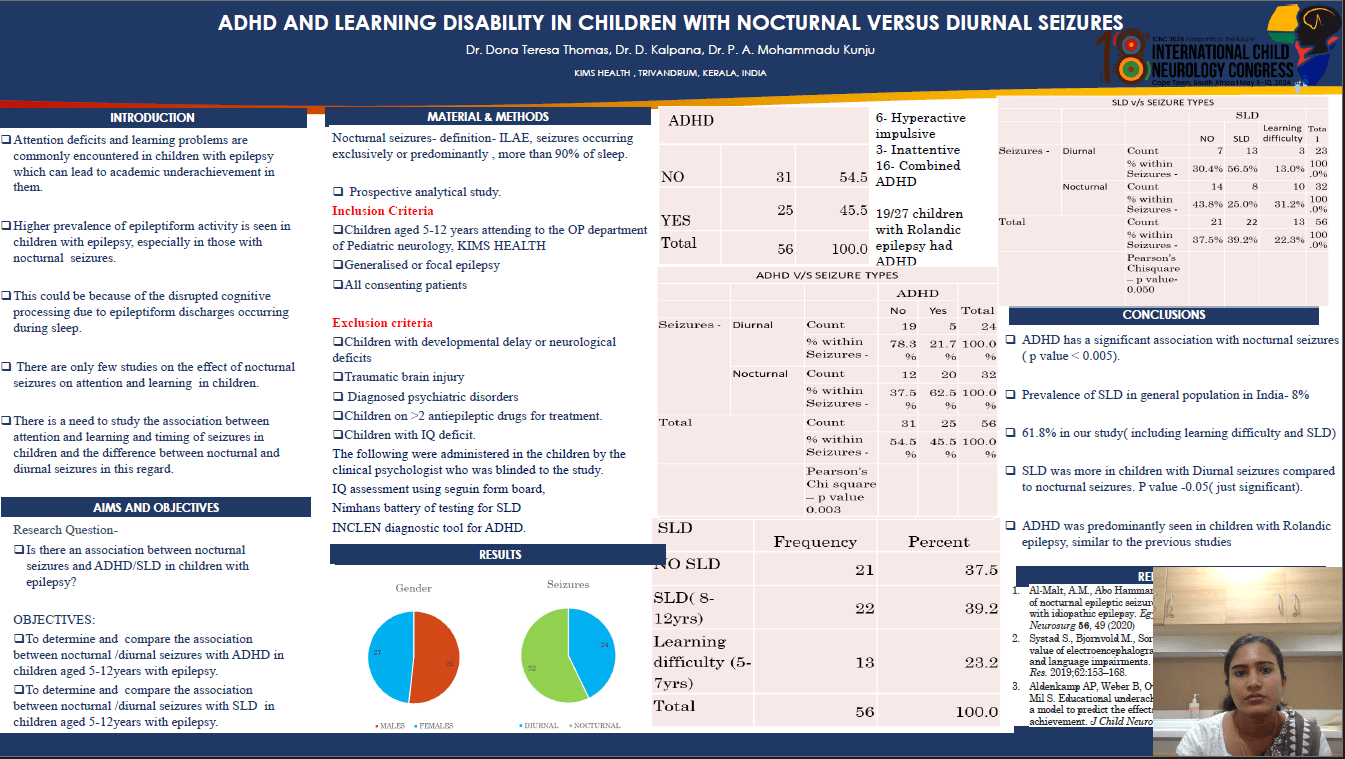Learning Disability And ADHD In Children With Nocturnal Versus Diurnal Seizures - An Analytical Study
Introduction Aims and Objectives: To determine the association between attention deficit hyperactivity disorder & specific learning disability and diurnal or nocturnal epileptic seizures, in children aged 5-12 years. Methods: Children aged 5-12 years attending the outpatient clinic of pediatric neurology department with generalized or focal seizures were included in the study. Children with developmental delay/ neurological deficits/psychiatric disorder/ on more than 2 antiseizure medicines were excluded from the study. IQ assessment using seguin form board, Nimhans battery of testing for SLD and INCLEN diagnostic tool for ADHD were administered in the children by the clinical psychologist who was blinded to the study. Statistical analysis was done using Fishers exact and Pearson tests. Results: Out of 56 children were included in the study, 41.8% were diurnal and 58.2% were nocturnal seizures. 45.5% of children had the diagnosis of ADHD (25/56).19/25 children with rolandic seizures had ADHD with a significant p value- 0.003. Specific learning disability ( SLD )was detected in 39.2% of children. SLD was observed to be more in children with diurnal seizures 56.5% versus 25% in children with nocturnal seizures with p value of 0.05. 61.8% of children with seizures (either nocturnal or diurnal) had learning difficulty or SLD. Conclusion ADHD has a significant association with nocturnal seizures ( p value < 0.005) , predominantly in children with rolandic seizures. 61.8% of children with seizures suffered from learning difficulty. Specific learning disability was more commonly seen in children with diurnal seizures when compared to nocturnal seizures. Disclosures – None.
DONA TERESA THOMAS
ASTER MEDCITY
India
KALPANA D
ASTER MEDCITY
India
P. A. MOHAMMADU KUNJU
ASTER MEDCITY
India

DONA TERESA THOMAS
ASTER MEDCITY
India